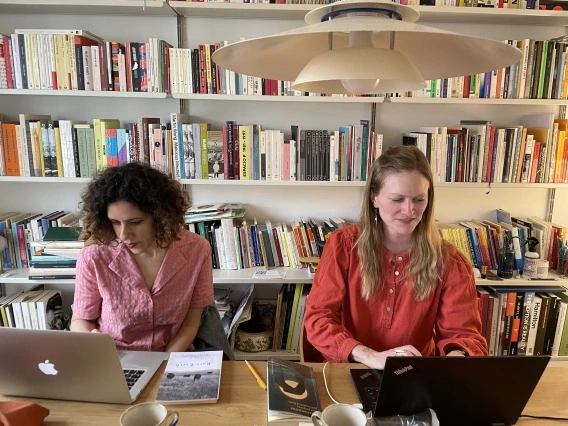
By Kelsi Vanada
Program Director, American Literary Translators Association
A poem in translation is a rewriting of the original—at once the same poem and a new poem. “It’s a sibling. It’s not a twin,” as described by Danish translator Katrine Øgaard Jensen, winner of the American Literary Translators Association (ALTA) 2018 National Translation Award in Poetry.
ALTA translators like Øgaard Jensen are working to help world literature find its way to Anglophone readers who could never experience it otherwise. Tucson has been ALTA’s home since 2019, when we affiliated with the U of A College of Humanities.
The “sibling” nature of translation helps me think about it as an inherently collaborative and multi-disciplinary act—both values that ALTA shares with the College of Humanities. The U of A now has 25 ALTA Faculty Affiliates, faculty and staff who are committed to teaching translation in their classrooms, giving students the opportunity to expand their sense of what this art form makes possible.
In addition to serving as ALTA’s Program Director, I am a translator myself, primarily of Spanish-language poetry. I discovered literary translation when I was in graduate school. I took my first translation workshop and was “hooked.” I had never considered that my love of the Spanish language and of Spanish-language literature could be combined with my love of writing poems. Translating poetry allows me to work in collaboration with another writer and their words—it’s creative writing, with different constraints.
My current translation project was awarded a 2024 Translation Fellowship from the National Endowment for the Arts. I’m translating Spanish poet Berta García Faet’s 2021 poetry collection Una pequeña personalidad linda [A Little Pretty Personality]. It’s her seventh book, the work of a poet in the prime of her writing life. The book’s central motif is a reinvention of the image of the medieval trobairitz: a wandering narrator singing as she goes through the world in search of something not yet named, a pilgrimage through a riddle of a universe that seeks to impose its conventions on a voice longing to be free.
García Faet and I have known each other since 2016, when I translated one of her earlier collections, La edad de merecer, which became The Eligible Age in English. I’m lucky to get to work closely with her, and we’ve become friends. Last spring, I visited her in Madrid to talk through my progress on the translations together. Berta holds a Ph.D. in Hispanic Studies, and the book is full of medieval Spanish and Spanish words of Arabic origin, alongside neologisms she’s invented. It’s a delightful challenge.
This translation demands that I draw upon skills I developed in my own Humanities education: research skills that take me into other disciplines, linguistic skills, creativity and problem-solving in collaboration, and also the empathy needed to immerse myself in another's words—all skills that literary translation can foster, at the U of A and beyond.
Join Kelsi Vanada this spring for a Humanities Seminar Program course. “Encountering World Literature in Translation” will be Thursdays between 2 p.m. and 4 p.m., from Jan. 30 through Feb. 20.

